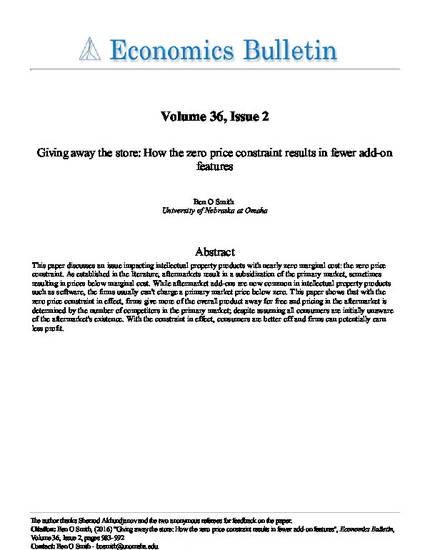
This paper discusses an issue impacting intellectual property products with nearly zero marginal cost: the zero price constraint. As established in the literature, aftermarkets result in a subsidization of the primary market, sometimes resulting in prices below marginal cost. While aftermarket add-ons are now common in intellectual property products such as software, the firms usually can't charge a primary market price below zero. This paper shows that with the zero price constraint in effect, firms give more of the overall product away for free and pricing in the aftermarket is determined by the number of competitors in the primary market; despite assuming all consumers are initially unaware of the aftermarket's existence. With the constraint in effect, consumers are better off and firms can potentially earn less profit.
Available at: http://works.bepress.com/bensmith/4/
